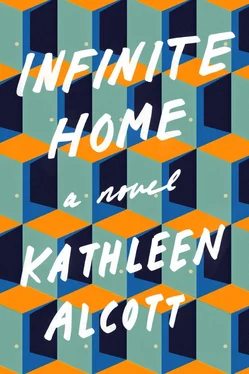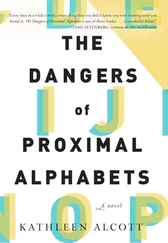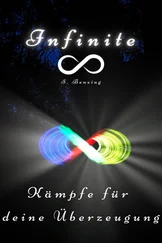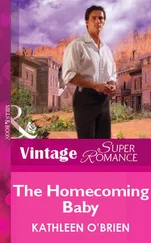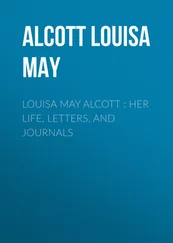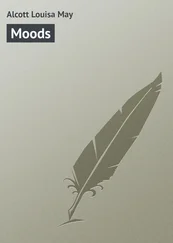He left the car door open, the sensor dinging and nagging, as he paced back and forth along the road’s shoulder, pausing at points to will some divine clue and then blushing at his foolishness. On his final lap, ready to get in the car and scan the next few miles of road, he felt the pang of an approaching aura. Unwilling to embrace the uncomfortable swirl of color at the margins of his vision— This doesn’t help me, not now— Thomas settled horizontally on the damp and green side of the road with a hand over his eyes and waited for the ache to strike. As the pain descended, he tried to focus on the view, the trees that triangulated in their height and framed the lowering sun.
Closer to him than the wash of sky, thirty feet above the ground, a length of faded mauve cloth stretched from one branch to another. A foot above glinted a section of pink ribbon, taut and pearled with the near-dusk. A slash of green. Orange. Yellow. He gripped grass in his fists and looked, but saw no clear indication of how whoever tied them there had scrambled up, no marks in the tree but those of weather. The aura rippled and bled his perspective of the colors, and he waited for them to clear, his mind renouncing worries one by one, like muscles giving out.
—
IT FELT DIFFICULT to believe that an hour before, he’d lain curled in the throes of a migraine on the shoulder of the road: now he walked through patches of light where the trees parted their tangled meetings, now he saw — far ahead, but not unreachable — the system of structures.
He momentarily believed, with the kind of unblemished optimism that only accompanies new places, that he had nothing to be afraid of: he would end up with Adeleine or he wouldn’t, he would find Jenny or let the blurred idea of her go, he would accept the lost agency of his body and find another use. Fed by rosy resolve, he approached the cluster of buildings set against the forest in ragged lines, and made for the largest, where a slipshod porch cast blue shadows. The shade of a veranda, composed primarily of a drooping sweep of fishnet, was woven with the spines of hardback books, the lone soles of hiking boots, gnarled pieces of wood that varied in lengths and browns.
In the small of his back and the balls of his feet, Thomas felt the men approach.
He turned to witness their congruent outlines, long hair that fell around stern faces, clothing patched and repatched so thoroughly it obscured any original layer. Their ages seemed indeterminable, as if instead of possessing a certain number of years they shed and gained age, as circumstances required, from one great shared well. In one motion, all of them extended their arms upward in Vs. Either like reaching for something hidden, Thomas thought, or preparing for a fall.
“Raise your arms up to greet us,” said one with gray eyebrows that nearly met and a tattered rope of violet cloth in his long hair, not ungently. He was trying to guide him, Thomas could tell, attempting to lead the foreigner’s first communication.
“But I — can’t,” said Thomas, pointing at his limp arm with his virile one. “But I can’t .”
—
LATER, INSIDE, a hardening clustered among the men. He was a stranger, and he had asked to speak with Jenny, had used her birth name as if he owned it. “I’m here,” he had said, “on behalf of her mother,” as though that would make it better, as though it weren’t offensive enough, his arriving there insisting she belonged more rightfully to some other life.
They were seated in what he assumed was a common area, under polished conch shells that sat on foot-long shelves of birch high up the wall. Bags of rice rested on tapestries of crudely stitched images of forests and rivers. Tortoiseshell cats entered and exited, turning corners purposefully. In a specious reversal of power, all the men sat on square pillows they had removed from a pile in the corner and arranged in a half orbit below Thomas, who balanced in a modest rocking chair. Looking at them, he noted they had mastered the art of listening and threatening simultaneously. The door, which leaned slightly off its hinges, was half open and suggested escape, but he understood they would not permit him to walk out.
“Her son is trying to take her home from her,” he said, his voice hushed with exasperation. “Jenny’s brother .”
“Song,” they said. Every time he said Jenny , all the figures in the room murmured Song in correction, further contributing to the impression that they were forever collectively processing.
“She was one of the first ones here, wasn’t she?” Thomas heard himself continue. “She came with Root.” He hoped that this might indicate a respect for their mythology, that he had not arrived to beg without understanding what they risked by giving, but the mention of the lean man in the forty-year-old photographs made them lower their heads.
“I’ll take you to see Song,” said the one Thomas now understood to be the eldest, “but after, it will be time for you to go.” He rose without checking to see whether Thomas was following, used a careful thumb and forefinger to open the door. Thomas, who hoped to express some thanks, stood to speak, but their heads were pressed into their laps, and their long hair in grays and browns ran over their ears and onto the dusty hardwood. The man he was meant to follow was already outside, and the day was already losing its downy heat.

EDWARD AND CLAUDIA took turns at the wheel, slipping in and out of the driver’s seat without much discussion: he could tell by the change in her breathing, low and shallow, when she’d grown tired, and she knew when he became quiet, no longer mocked billboards and bumper stickers. Paulie alternately napped and enthused, woke into excitement and wore it out again. He resembled a maladroitly assembled angel under the staticky corona of hair that encircled him, and he glowed with the dew of sleep in the refracted sun. As he drooled on the bright blue sweatshirt pressed against the window as a pillow, Claudia periodically looked over and gave thanks for the temporary quiet. It was as though every time he regained consciousness, he remembered not only their destination and the much-anticipated dance of the fireflies, but also every moment in his life that had amused or satisfied him, every song and birthday and windless afternoon.
First his unnaturally long eyelashes fluttered, then his eyelids snapped up like blinds. His slack fingers twitched, then all straightened at once, like something being turned on, and clapped his face. “Oh my god!” yelled Paulie, so loud that Edward jammed his index fingers into his hairy eardrums. “We’re getting there, aren’t we!”
In Edward’s few moments alone — pissing in increasingly squalid gas station bathrooms, the rare occasion of focused thought made possible when both Claudia and Paulie had fallen asleep, on stretches of highway shoulder where they stopped occasionally to move their legs and establish some distance from one another — he admitted to feeling a little worried. Claudia looked towards her brother with a fierce adoration, yes, but she also assaulted the gas pedal with the unyielding force of a waterfall, she also seemed unconcerned with the existing flow of cars when merging onto the freeway. He had stopped suggesting she glance over her shoulder, which only made her driving more aggressive.
For the first three or four hours of the trip, her cell phone had rung and shaken at a near-constant rate. She had turned up the stereo and sung louder to Sticky Fingers , she had insisted on an inane car game in which one alphabetically listed the fictitious people they knew. Paulie had strained to remember: “At the party, I saw Aranda… Bernard… Caligula… Dan… Eloise.” Finally, without fanfare, she had turned off the phone and let it slide down her glistening palm, past her chipped blue fingernails, and onto the freeway.
Читать дальше
